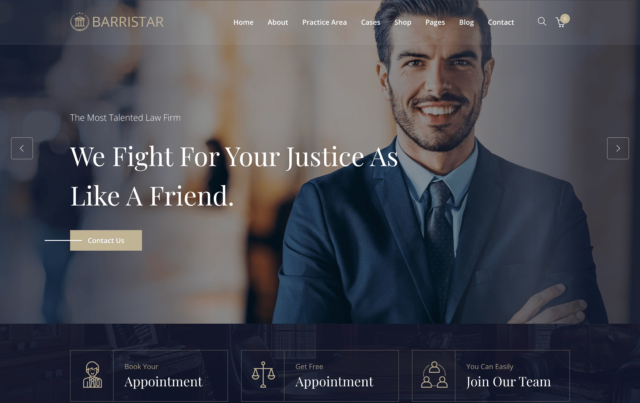Attorney Advertising Rules for the State of Arizona
Read for more information on the rules for online advertising for Arizona attorneys
Attorneys practicing in Arizona must adhere to specific advertising regulations outlined in the Arizona Rules of Professional Conduct, particularly Ethical Rules (ERs) 7.1 through 7.5. These rules ensure that legal advertising is truthful, non-misleading, and upholds the integrity of the legal profession. Below is a detailed overview of the key provisions governing attorney marketing and advertising in Arizona.
ER 7.1: Communications Concerning a Lawyer’s Services
- Prohibition of False or Misleading Communications:
- Lawyers must not make false or misleading communications about their services.
- A communication is false or misleading if it contains a material misrepresentation of fact or law, or omits information that makes the statement as a whole materially misleading.
- Avoiding Unverifiable Claims:
- Attorneys should not make claims that cannot be substantiated or verified.
- Comparisons with other lawyers’ services are prohibited unless they can be factually substantiated.
ER 7.2: Advertising
- Permissible Advertising Methods:
- Lawyers may advertise their services through written, recorded, or electronic communication, including public media.
- All advertisements must comply with ER 7.1.
- Payment for Recommendations:
- Lawyers shall not give anything of value to a person for recommending the lawyer’s services, except for:
- Paying the reasonable costs of advertisements or communications permitted by these rules.
- Paying the usual charges of a legal service plan or a not-for-profit lawyer referral service.
- Lawyers shall not give anything of value to a person for recommending the lawyer’s services, except for:
- Mandatory Disclosures:
- Any communication made pursuant to this rule shall include the name and office address of at least one lawyer or law firm responsible for its content.
- Restrictions on Solicitation:
- A lawyer shall not seek employment in connection with a matter in which the lawyer does not intend to participate actively in the representation but intends to refer to other counsel.
ER 7.3: Solicitation of Clients
- Direct Contact with Prospective Clients:
- Lawyers must not solicit professional employment through in-person, live telephone, or real-time electronic contact when a significant motive is the lawyer’s pecuniary gain, unless the contact is with:
- Another lawyer.
- A person with whom the lawyer has a family, close personal, or prior professional relationship.
- Lawyers must not solicit professional employment through in-person, live telephone, or real-time electronic contact when a significant motive is the lawyer’s pecuniary gain, unless the contact is with:
- Written, Recorded, or Electronic Solicitation:
- Such communications are permitted but must include the words “Advertising Material” at the beginning and end of the communication, unless the recipient is:
- A lawyer.
- A person with a prior professional relationship with the lawyer.
- Such communications are permitted but must include the words “Advertising Material” at the beginning and end of the communication, unless the recipient is:
- Prohibited Solicitations:
- Solicitation is prohibited if:
- The prospective client has expressed a desire not to be solicited.
- The solicitation involves coercion, duress, or harassment.
- Solicitation is prohibited if:
ER 7.4: Communication of Fields of Practice and Specialization
- Stating Practice Areas:
- Lawyers may communicate the areas of law in which they practice.
- Claims of Specialization:
- Lawyers must not state or imply they are certified as a specialist in a particular field of law, except:
- If they have been certified by an organization approved by an appropriate authority or accredited by the American Bar Association.
- The certifying organization’s name is clearly identified in the communication.
- Lawyers must not state or imply they are certified as a specialist in a particular field of law, except:
ER 7.5: Firm Names and Letterheads
- Use of Firm Names:
- Firm names, letterheads, and other professional designations must not be misleading.
- Trade Names:
- Use of trade names is permissible if they do not imply a connection with a government agency or charitable organization and are not otherwise misleading.
- Identification of Jurisdictional Limitations:
- If a firm operates in multiple jurisdictions, any jurisdictional limitations of lawyers not licensed to practice in a particular jurisdiction must be indicated.
Additional Considerations
- Internet and Social Media Advertising:
- The Arizona Rules of Professional Conduct apply equally to digital advertising, including websites and social media platforms.
- Attorneys must ensure that online content adheres to the same standards of truthfulness and transparency outlined in ERs 7.1 through 7.5.
- Use of Testimonials and Endorsements:
- Testimonials and endorsements in advertisements must not create unjustified expectations or make unverifiable claims.
- If a client testimonial discusses specific case outcomes, the advertisement must clearly disclose that outcomes depend on the unique circumstances of each case and cannot be guaranteed.
- Contingency Fee Disclosures:
- Any advertisement mentioning contingency fees must clearly state that clients may still be responsible for court costs and expenses, even if the case is not successful.
Enforcement and Compliance
- Disciplinary Actions for Non-Compliance:
- Attorneys who fail to comply with Arizona’s attorney advertising rules may face disciplinary action, including fines, suspension, or other penalties.
- The State Bar of Arizona is responsible for investigating and prosecuting violations of the advertising rules.
- Seeking Guidance
- Attorneys in Arizona who are uncertain about the compliance of their advertising materials can request an advisory opinion from the State Bar of Arizona’s Ethics Hotline or consult with the Advertising Review Committee.
- This proactive approach helps prevent inadvertent violations and ensures that all advertisements adhere to ethical standards.
Disciplinary Process
- Non-compliance with the Arizona attorney advertising rules can result in disciplinary actions ranging from reprimands to suspension or disbarment, depending on the severity and nature of the violation.
- Complaints are investigated by the State Bar, and serious cases are referred to the Presiding Disciplinary Judge of the Arizona Supreme Court.
Record-Keeping Requirements
- Retention Period:
- Lawyers must retain a copy of all advertisements for at least three years from the date of their last dissemination.
- Records must include details such as when and where the advertisement appeared.
- Electronic Advertisements:
- For digital and online advertisements, lawyers should maintain a durable and retrievable format of the content, including all relevant disclosures and disclaimers.
Additional Advertising Requirements in Arizona
Use of Visual and Audio Media
- Advertisements that include visual or audio elements (e.g., television or radio ads) must meet the following standards:
- Clearly identify the lawyer or firm responsible for the content.
- Include disclaimers about dramatizations or the use of actors, if applicable.
Misleading Use of Trade Names
- Trade names are allowed but must not suggest connections with government entities, nonprofit organizations, or other entities unless those connections are accurate and disclosed.
Social Media Compliance
- Attorneys using social media for advertising must ensure that their profiles, posts, and advertisements comply with the rules against misleading or unverifiable claims.
- Social media platforms are considered public media and fall under the scope of ER 7.2 and related rules.
Conclusion
The attorney advertising rules in Arizona, outlined in Ethical Rules 7.1 through 7.5, are designed to maintain the integrity of the legal profession and protect the public from misleading or unethical practices. These rules regulate all forms of advertising, including print, television, digital media, and social media.
By adhering to these guidelines, attorneys can promote their services transparently and ethically while building trust with potential clients. For assistance or clarification, attorneys are encouraged to consult the State Bar of Arizona or seek an advisory opinion from the Advertising Review Committee. Proper compliance ensures effective marketing while avoiding disciplinary actions and maintaining professional integrity.
Our marketing packages include the following
Search Engine Optimization
Paid Search Management
Legal Content Development
Website Design
Live Chat
Social Media Management









